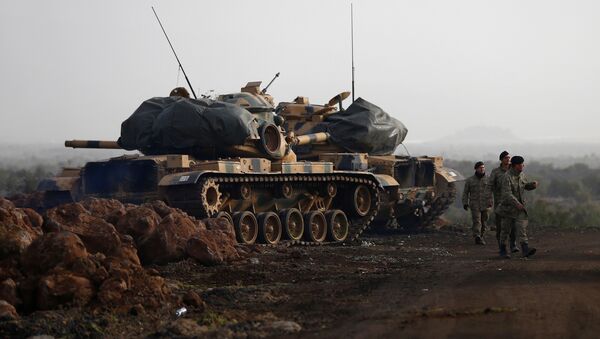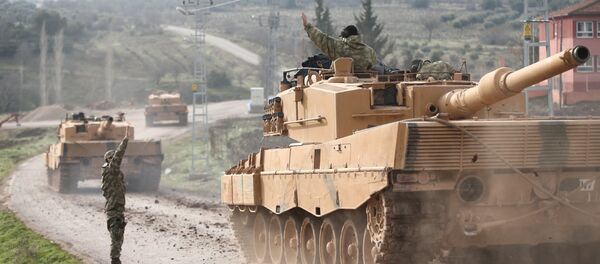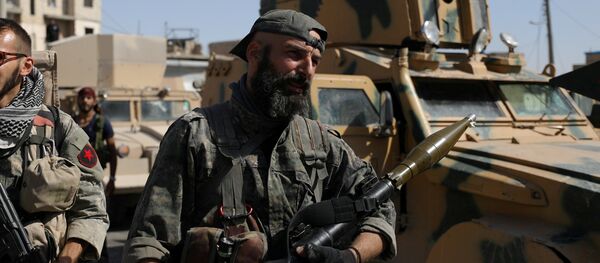"An immediate halt to all arms exports to Turkey is long overdue," German lawmaker Agnieszka Brugger told the Heilbronner Stimme news outlet on Monday. "This intense situation should be a wake-up call for the German government," the legislator said.
In 2016, Berlin sold Turkey $99 million worth of bombs, torpedoes and missiles and sold another $30 million of military goods to Ankara in 2017.
The Kurdish People's Protection Units (YPG) have been the main US proxy for fighting Daesh terrorists in Syria and Iraq and have received small arms and vehicles from the Pentagon. These Kurds are now fighting the government of Turkey, which brought the fight to them in Afrin, a city in northern Syria. On Tuesday, the Pentagon-backed Syrian Democratic Forces in Afrin called on civilians to pick up arms against Turkey, France 24 reported.
Speaking from Berlin, Sputnik correspondent Marcel Joppa told Radio Sputnik's Fault Lines that the German government has been "very quiet" on the conflict in Syria, observing that "may be because the Turks have German weapons and the YPG has German weapons."
Foreign policy analysts have criticized the US decision to appease Turkey. Washington's "policy of appeasing Turkey, leaving Kurds to their fate, is strategically misguided and morally bankrupt," Richard Haass, a former US diplomat and president of the Council on Foreign Relations, said via Twitter on Tuesday.
Max Abrahms, a counterterrorism researcher at Northeastern University, pointed out that former US President Barack Obama "got hammered throughout his presidency for not showing leadership in the Mideast. Now the main supporter of [Daesh] is fighting our main ally against [Daesh] and the US is sitting this one out."
Abrahms previously explained to Sputnik that Turkey "may be the biggest state sponsor of Daesh," though the plan backfired when the terrorist group mounted attacks within Turkey's borders.
Turkey has had varied interests in Syria, Abrhams said last month. "Turkey has been an advocate of removing Assad; you know, Turkey supported some of the rebel groups to topple him," the researcher explained, "but from the beginning Turkey's main interest in Syria has been weakening the Kurds."
On Monday, not a single journalist at the White House press briefing asked a question about the simmering Kurd-Turk conflict, Fault Lines host Lee Stranahan observed.





